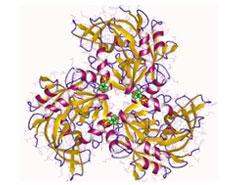An altered apoptotic response represents a pivotal feature of cancer, contributing to carcinogenesis and resistance to therapy. Our recent studies demonstrate high expression of Mcl-1, bclxL and bclw transcripts in oral cancer cell lines (Gurav, Dwivedi) and in immortalized fetal buccal mucosa cell line (FBM) using the Ribonuclease Protection assay. In addition 65% of the oral tumor samples examined by RPA assay also exhibited upregulation of Mcl-1(L) transcript which is an anti-apoptotic form. Mcl-1 is an anti-apoptotic member of the Bcl-2 gene family and is involved in controlling cell viability and immortalization. Enforced expression of Mcl-1 in a susceptible cell type and conductive environment, can enhance viability over the long term, thereby leading to tumorigenesis. The present study proposes to investigate the protein expression and the splice variants of Mcl-1 viz. Mcl-1L (anti-apoptotic) and Mcl-1S (pro-apoptotic) in oral tumors and lesions using western blotting and RT-PCR. Employing RNAi strategies to down regulate Mcl-1L., the role of Mcl-1 with respect to apoptosis and chemo-resistance in oral cancer cell lines will be analyzed. Studies to identify the upstream regulators and the survival pathway(s) inducing the high Mcl-1 expression in oral cancer cell lines will also be carried out using inhibitors of the MAP kinase (P098059 UO126), STAT and P13K (LY 94002 Wortmannin) survival pathways. The expression of Mcl-1 protein in a premalignant lesion is illustrated in fig.


